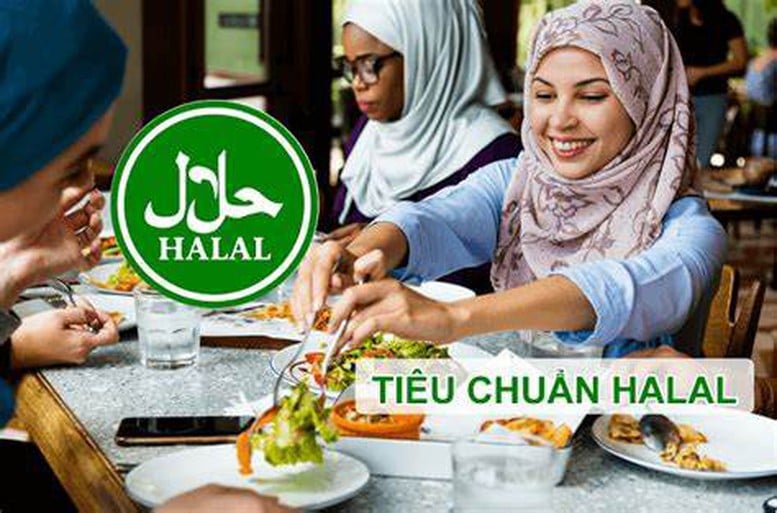
Vietnam has a great advantage with 20 agricultural products that are being imported the most by countries in the Organization of Islamic Cooperation (OIC).
The first international scientific conference "Innovation, integration and sustainable development", held on April 17 in Hanoi, clarified the potential and development orientation of Vietnam's Halal economic sector, with the participation of many domestic and international experts, managers and businesses.
According to the Ambassador of the Islamic Republic of Iran, Ali Akbar Nazari, the Halal food industry is the most important segment of the Halal economy, accounting for about 65% of the total Halal trade. In 2023, the sector generated a revenue of 2.3 trillion USD and is expected to reach 5.3 trillion USD by 2030, with a compound annual growth rate (CAGR) of 10.5%. Halal food is expected to account for 20% of the total global food trade in the near future. The Halal market size is currently at 8 trillion USD and is forecast to increase to 12 trillion USD in the next 5 years, opening up great opportunities for countries participating in this supply chain.
Currently, more than 2 billion Muslims live in 112 countries and territories, accounting for 25% of the world's population, concentrated in Asia (62%), especially in the ASEAN bloc. The Asia-Pacific region, home to the world's largest Muslim population, consumes more than 63% of global Halal products, becoming the center of this dynamic market. With its strategic location, Vietnam is considered an important gateway to penetrate this large market, according to Mr. Nazari.
Associate Professor, Dr. Nguyen Hoang, Rector of the University of Commerce, commented that Vietnam has many favorable conditions to develop the Halal industry. Its strategic geographical location, strengths in agriculture, food, tourism, and services, along with deep international economic integration through new-generation free trade agreements, create opportunities for Vietnam to participate in the Halal market. Mr. Ramlan Bin Osman, Director of the National Halal Certification Center (HALCERT) - Ministry of Science and Technology , emphasized that Vietnam possesses abundant raw materials for the Halal food industry, such as coffee, rice, seafood, spices, nuts, vegetables and fruits, capable of producing final products that meet Halal standards.
Promoting the strengths of Vietnamese agricultural production
Vietnam has a big advantage with 20 agricultural products that are being imported the most by countries in the Organization of Islamic Cooperation (OIC), including coffee, rice, cashew nuts, pepper, fresh fruit, processed foods, confectionery, honey, cinnamon, and fruit juice. Mr. Tran Van Hiep, Vice President of the Vietnam Cashew Association, said that from 2022 to 2024, cashew nut exports to the Middle East will reach about 400 million USD per year, with more than 60,000 tons of cashew nuts, accounting for 8-13% of Vietnam's total cashew exports. Major markets such as the UAE, Türkiye, Saudi Arabia, Iraq, Jordan, Iran, and Egypt will import tens of millions of USD worth of Vietnamese cashew nuts in 2024.
In 2024, many Vietnamese agricultural products will record impressive export growth, such as rice, coffee, cashew nuts and pepper. Mr. Ramlan Bin Osman commented that if they meet Halal standards, these products can penetrate deeper into the Muslim market, where there is currently a large gap between the supply and demand of Halal products. In addition to agricultural products, Vietnam also has the potential to develop the Halal service industry, especially tourism. Recognized as a leading international destination since 2018, Vietnam can develop Halal restaurants and catering services to attract Muslim tourists.
The world has seen many non-Muslim countries succeed in the Halal market by tapping into its potential early. Australia is the largest exporter of beef to the Middle East, Brazil is a leader in Halal poultry, while Japan and South Korea aim to develop Halal tourism. In Southeast Asia, Thailand, despite its low Muslim population, has built a strong Halal economy, becoming one of the world's largest producers of Halal processed foods, with the brand "Kitchen of the World".
To develop its potential, Vietnam needs to learn from the experiences of these countries to build a Halal ecosystem. Ambassador Ali Akbar Nazari affirmed that Iran is ready to cooperate with Vietnam, sharing experiences, resources and legal systems in the Halal industry. Iran proposed to support the establishment of a Halal certification process, organize training programs and seminars, helping Vietnam build a Halal system that meets global standards. With the desire to expand the export of Halal products to West Asia, Vietnam can consider Iran as a strategic bridge.
The Ambassador of the Kingdom of Morocco to Vietnam, Mr. Jamale Chouaibi, also proposed cooperation in exchanging professional knowledge and building Halal certification infrastructure, such as laboratories and inspection assessment systems. Morocco can become a bridge for Vietnamese Halal products to access markets in Africa, the Middle East and Europe, while Vietnam supports bringing Moroccan products to Southeast Asia. Mr. Chouaibi emphasized the need to formalize cooperation through agreements and memorandums of understanding (MoUs) to harmonize standards and simplify the Halal certification process, facilitating bilateral trade.
Associate Professor, Dr. Nguyen Hoang commented that participating in the Halal market not only helps Vietnam diversify its market and develop tourism, but also opens up opportunities to export its strong products and attract financial investment from international and regional corporations. This will help businesses and localities improve their competitiveness and human resource quality, while promoting technology transfer, especially in production, processing, preservation and transportation according to Halal standards.
To seize the opportunity, Vietnam needs to build a comprehensive Halal ecosystem, from production, processing to certification and export. This includes training human resources, building an internationally standardized Halal certification system, and enhancing trade promotion in Muslim markets. The conference organized by the Ministry of Industry and Trade in early April 2025 with the theme "Trade promotion to enhance exploitation of the global Halal product market" emphasized the role of Vietnam's overseas trade offices in supporting businesses to penetrate the Halal market.
Do Huong
Source: https://baochinhphu.vn/viet-nam-cua-ngo-chien-luoc-phat-trien-nganh-thuc-pham-halal-102250417171758978.htm



![[Photo] Prime Minister Pham Minh Chinh chairs meeting on science and technology development](https://vphoto.vietnam.vn/thumb/1200x675/vietnam/resource/IMAGE/2025/5/17/ae80dd74c384439789b12013c738a045)
![[Photo] More than 17,000 candidates participate in the 2025 SPT Competency Assessment Test of Hanoi National University of Education](https://vphoto.vietnam.vn/thumb/1200x675/vietnam/resource/IMAGE/2025/5/17/e538d9a1636c407cbb211b314e6303fd)
![[Photo] Readers line up to visit the photo exhibition and receive a special publication commemorating the 135th birthday of President Ho Chi Minh at Nhan Dan Newspaper](https://vphoto.vietnam.vn/thumb/1200x675/vietnam/resource/IMAGE/2025/5/17/85b3197fc6bd43e6a9ee4db15101005b)




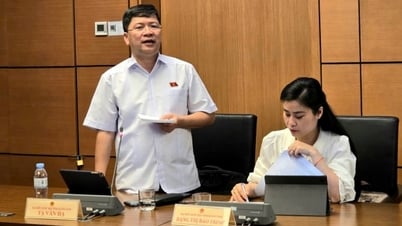

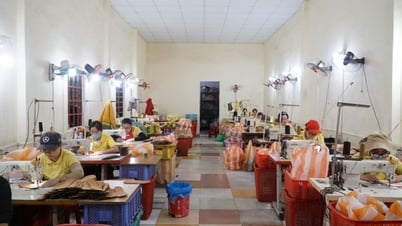





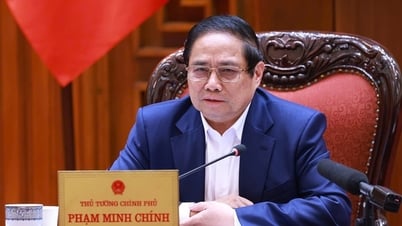
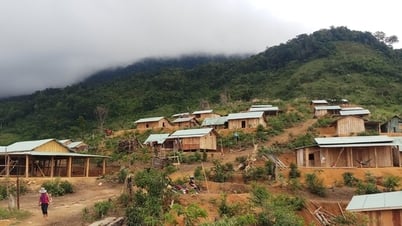
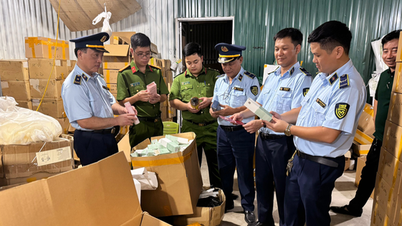


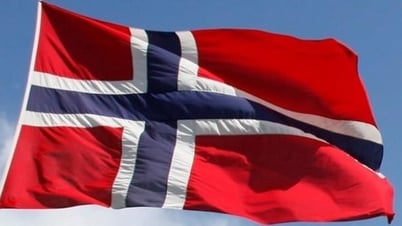
![[Photo] Nearly 3,000 students moved by stories about soldiers](https://vphoto.vietnam.vn/thumb/1200x675/vietnam/resource/IMAGE/2025/5/17/21da57c8241e42438b423eaa37215e0e)




















































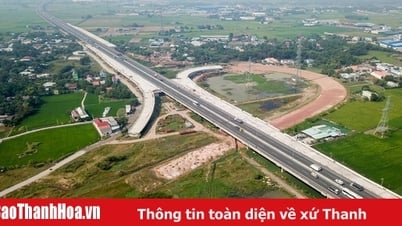



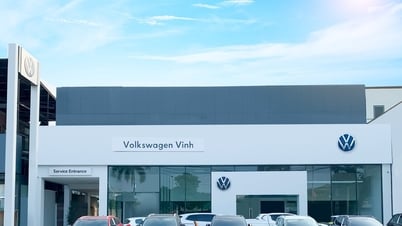

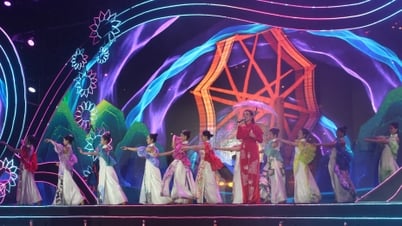

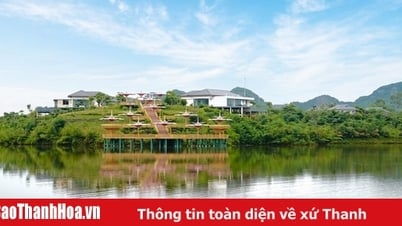









Comment (0)